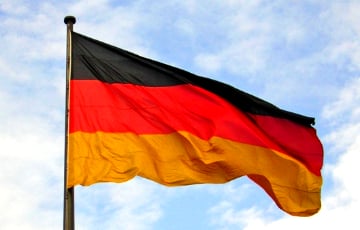Russia's Trade With Germany Collapsed To A Post-Soviet Low
3- 11.06.2025, 19:53
- 3,714

German purchases of Russian goods have collapsed by 95% since before the war.
Vladimir Putin has many ties to Germany, where he served as a KGB resident back in the Soviet era. It is all the more symbolic that his actions have provoked a virtual breakdown in trade relations between the two countries. Germany's purchases of Russian goods have collapsed by 95% since before the war and are the lowest since the collapse of the USSR. A similar picture is observed with sales of German goods in Russia, writes The Moscow Times.
Before Putin's war in Ukraine, Germany was Russia's second trading partner in terms of total trade turnover (after China): it amounted to 59.7 billion euros in 2021. But now Germany buys almost nothing from Russia: from the last pre-war year to 2024, imports collapsed by 94.6% to just €1.8 billion, the Federal Statistical Office (Destatis) reported. German exports to Russia collapsed by 71.6% to 7.6 billion euros over the same period.
The first statistics on trade with Russia after German reunification in October 1990 and the collapse of the Soviet Union in December 1991 began to be recorded in 1993.At that time, imports from Russia totaled 10.72 billion German marks, while exports totaled 11.39 billion marks. Translating these amounts into euros gives values of 5.48 billion euros and 5.82 billion euros, respectively.
From 1979 to 1999, a number of European countries, which later formed the eurozone, operated the European Monetary Mechanism, in which exchange rates were pegged to each other and could fluctuate within certain corridors. In 1999, when the cashless euro was introduced, the exchange rate of the mark was fixed at DM1.95583/euro.
So, last year Germany imported Russian goods for an amount about 3 times less than in 1993. And the trend of further decline continues: in April 2025, purchases in Russia fell by another 22.6% year-on-year to April of the previous year, amounting to only 100 million euros.
As for the supply of German products to Russia, their value is still slightly higher than in 1993, but, apparently, not for long. In April, exports fell 9.3% to just $600 million, according to the latest Destatis data.
The main commodities Germany purchased from Russia were gas and oil, and this dependence has only grown given the construction of the new Nord Stream 1 pipeline, which began deliveries in late 2011 and early 2012, and Nord Stream 2 (which Germany refused to certify in February 2022). In 2021, crude oil and natural gas were the most important commodities from Russia, accounting for 58.8% of all imports from there worth €19.5 billion.
But after Russia's invasion of Ukraine and 17 sanctions packages, Germany stopped buying hydrocarbons from Russia and severely cut other imports, leaving only a few metals, chemicals, food and feed.
But Germany used to be a major source of industrial equipment for Russia, accounting for more than a fifth (21.9%, or 5.8 billion euros) of all German exports. It was followed by automobiles and spare parts (16.5%) and chemical products (11.4%). Now there are mostly pharmaceutical and chemical products left, as well as some equipment.
Because some supplies are still going to Russia, while the commodity flow from Russia has almost dried up, Germany in 2024 had a trade surplus with it, which was previously recorded only three times in post-Soviet history: in the same 1993, in the covid 2000, as well as in 2023, when Russian raw materials producers had already lost the German market. By comparison, in 2022, when Germany was still buying Russian fossil fuels, which had soared in price, it recorded a record trade deficit of 21.8 billion euros.
The 2024 surplus is the largest since the collapse of the Soviet Union, Destatis said.
As a result of the war unleashed by Putin, Russia moved from 12th to 59th place in the list of Germany's suppliers (and its share in German imports fell from 2.8% to 0.1%) and from 15th to 36th in the list of buyers (the share changed from 1.9% to 0.5%).











